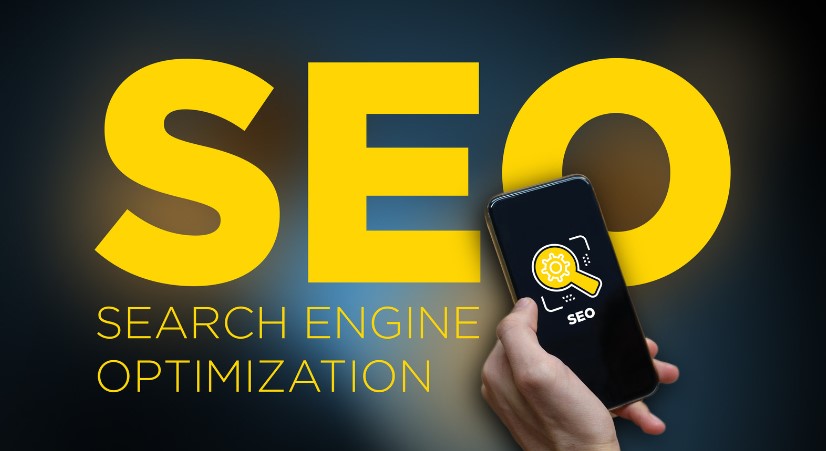
The Impact of SEO on Digital Marketing Strategy
In today’s fast-paced digital world, having a strong online presence is a necessity for businesses of all sizes. To outperform competition and reach potential customers, effective digital marketing strategies are essential. Among various digital marketing tools, Search Engine Optimization (SEO) holds a significant place. It has a profound impact on your digital marketing strategy and can shape the success of your business.
The Impact of SEO on Digital Marketing Strategy
Search Engine Optimization, or SEO, is a crucial element in the realm of digital marketing. It encompasses the methods and techniques used to elevate your website’s visibility on search engines like Google, with the goal of driving more organic, non-paid traffic towards your site.
The usage of strategic SEO practices, including keyword optimization, backlinking, and producing quality content, can greatly enhance your site’s position on search engine results pages (SERPs). As a result, a higher ranking brings about more exposure for your business, which in turn, attracts potential customers.

SEO’s importance in the digital landscape is clear; without it, your website risks getting lost in the vastness of the Internet. It’s a major player in your website’s visibility, taking your business from the back pages of search results to the front lines where more users can see and interact with it. It’s not just about attracting more visitors to your site, but the right kind of visitors — ones who are actively seeking the products or services you offer.
In the competitive digital landscape, every business is vying for a top spot on SERPs. Therefore, implementing SEO techniques isn’t just an option; it’s a necessity. It’s the difference between potential customers finding your business or your competitors. Thus, SEO holds a significant place in a digital marketing strategy, shaping your online presence and directly impacting your business’s success.
How SEO Influences Your Brand’s Online Visibility?
A successful online presence for your brand is highly influenced by your SEO efforts. By incorporating SEO strategies, your website stands a greater chance of appearing in the top search results. This boost in visibility is pivotal in increasing the click-through rate. Every click has the potential to increase brand awareness and further enhance the overall online presence of your brand.
The level of trust customers place in your brand is often linked to how visible your site is on search engines. Websites that consistently appear on the first page of search results are typically regarded as more credible and reliable. SEO plays a significant role in this perception, indirectly boosting your brand’s reputation.
But remember, it’s not just about visibility, it’s also about visibility to the right audience. SEO allows you to target specific keywords that are relevant to your brand. This results in attracting traffic that’s more likely to be interested in your products or services, enhancing the quality of your online visibility.
In essence, the role SEO plays in shaping your brand’s online visibility is undeniable. By integrating effective SEO practices, you have the potential to catapult your brand’s online visibility, fostering increased brand awareness and credibility.
Impact of SEO on Website Traffic and User Experience
A well-optimized website through strategic SEO practices can notably increase website traffic. By identifying and utilizing relevant keywords, you can attract more viewers who are actively searching for the content, products, or services you provide. Moreover, enhancing your site’s speed not only improves its performance but also contributes to better user experience, which is a key factor for achieving higher rankings on Google.
In addition, SEO goes beyond just improving your site’s visibility and reach. It also significantly enhances the overall user experience. Visitors are more likely to stay longer and explore your website if it’s easy to navigate, functions well on mobile devices, and offers valuable content. These factors contribute to lower bounce rates, which signals search engines that your website is providing users with the information they’re looking for. As a result, this favorable user behavior can positively impact your website’s ranking on search engine result pages.

Moreover, websites that deliver an outstanding user experience often see higher rates of visitor engagement and return visits, further increasing traffic over time. SEO tactics, like improving site structure, ensuring fast load times, and creating mobile-friendly interfaces, can greatly enhance user experience. These practices make your website more appealing and easier to use for visitors, which can increase time spent on your site and the likelihood of conversions.
However, SEO isn’t just about drawing in large numbers of visitors. It’s about attracting the right kind of visitors, those who are genuinely interested in what your business has to offer. SEO allows for targeted visibility, ensuring that your site gets seen by the right people. By appealing to these specific users, you can increase the quality of your website traffic, not just the quantity.
To summarize, SEO has a twofold effect on your website. It directly influences your site’s traffic by making your website more visible to potential customers. At the same time, SEO practices enhance the overall user experience, fostering a more engaging and user-friendly environment that keeps visitors coming back. Therefore, integrating SEO into your digital marketing strategy can positively influence both your website traffic and the user experience it provides.
SEO and Conversion Rates: A Strategic Relationship
The ultimate achievement of any digital marketing endeavor is the conversion of a visitor into a customer. SEO plays a fundamental role in realizing this objective. Effective SEO strategies entail the careful selection of specific keywords that resonate with the intent of your potential customers. By aligning your SEO efforts with user intent, you can ensure that the traffic drawn to your site is composed of individuals with a genuine interest in your offerings, thereby raising the probability of successful conversions.
Localized SEO presents another strategic approach to bolster conversions. Focusing your SEO practices on local search results can lead to an increased influx of visitors to your physical storefronts, thereby augmenting offline conversions. For businesses with a brick-and-mortar presence, this strategy can be an indispensable part of their broader SEO game plan.
Nevertheless, the relationship between SEO and conversion rates goes beyond mere traffic attraction. SEO practices also encompass the optimization of your website design and layout to create a seamless and intuitive user experience. A well-structured site with easy navigation is more likely to retain visitors and guide them down the conversion funnel.
On-page SEO strategies, such as clear call-to-action buttons, easy checkout processes, and engaging product descriptions, can aid in maximizing conversions by facilitating the customer journey on your site. Similarly, the technical aspects of SEO, like ensuring fast page load times and mobile-friendly design, can make the buying process more efficient, thereby encouraging conversions.
In essence, SEO strategies work not just by driving relevant traffic to your site, but also by refining the on-site experience for potential customers. In doing so, SEO serves as a pivotal tool for businesses to boost their conversion rates, thereby optimizing their return on investment in digital marketing. This strategic interrelationship between SEO and conversion rates highlights the importance of incorporating SEO tactics in any comprehensive digital marketing strategy.
SEO and Its Role in Content Marketing
In the digital marketing arena, Content Marketing and SEO are two closely knit facets. Creating high-caliber, pertinent content is a powerful tool in engaging your target audience, but it also has a profound impact on your SEO initiatives.
When content is meticulously crafted with appropriate keywords, organized effectively, and offers invaluable insights to the reader, it’s more likely to attain a higher position on search engine rankings. SEO is an instrumental force in circulating this content via various outlets such as social media platforms, emails, and blog posts.
An effective content marketing strategy, bolstered by SEO, not only increases your site’s visibility but also encourages interaction and engagement with your audience. It’s about creating content that resonates with potential customers, attracting them to your site, and encouraging them to share your content. When executed correctly, this combination can lead to higher traffic, improved brand recognition, and ultimately, increased conversions.

Moreover, SEO can help you understand what type of content your audience is looking for. By using SEO tools to analyze search trends and user queries, you can tailor your content to meet your audience’s needs and interests. By addressing these interests in your content, you not only provide value to your readers, but also increase the chances of your content appearing in relevant search results.
However, it’s essential to remember that SEO is not a one-time effort. It requires continuous optimization and updating. Just as you update your content to stay relevant to your audience, your SEO strategies must also evolve. As search engine algorithms change, your keyword strategies, meta descriptions, and content structure may need to be adjusted to ensure your content continues to rank well.
In essence, the intertwining of SEO and content marketing forms a vital aspect of a successful digital marketing strategy. By effectively leveraging SEO in your content marketing efforts, you can significantly enhance your brand’s online visibility, engage your target audience more effectively, and ultimately drive business growth.
The Future of SEO: Keeping Up with the Trends
In the dynamic world of SEO, adapting to continual advancements and shifts is vital for businesses to maintain their online competitiveness. Major advancements like Artificial Intelligence (AI), the prevalence of voice search, the priority of mobile-first indexing, and Google’s Core Web Vitals are currently setting the pace in SEO. By recognizing and integrating these emerging trends into your SEO strategies, you can position your brand favorably and effectively in the rapidly evolving digital landscape.
The advent of AI is revolutionizing SEO strategies. AI’s ability to analyze user behavior and search patterns can help businesses better understand their audience, leading to more personalized and effective SEO strategies.
Voice search is another significant trend, with the growing popularity of digital assistants like Siri, Alexa, and Google Assistant. Adapting your SEO strategy to account for voice search involves considering conversational phrases and questions that people typically use while speaking, rather than typing.
Mobile-first indexing is now the default for new websites, as Google predominantly uses a site’s mobile version for indexing and ranking. Ensuring your website is mobile-friendly can significantly enhance its visibility in search results.
Google’s Core Web Vitals, a set of metrics related to speed, responsiveness, and visual stability, is another trend to watch. These vitals will soon become ranking signals, making them an integral part of SEO strategies.
Incorporating these emerging trends into your SEO strategy will not only keep your business at the forefront of digital marketing but also ensure your website remains competitive and visible in search results. However, it’s crucial to remember that SEO is not static; it requires regular re-evaluation and adjustments to stay effective. As SEO continues to evolve, staying updated with the latest trends and changes can give you a competitive edge in the ever-changing digital landscape.
Author bio
My name is William shakes and I’m a business strategist who specializes in sales, outreaching and marketing strategies for businesses of all sizes, currently working at AverickMedia one of the leading providers of b2b data. I have a deep understanding of what it takes to drive success and have an extensive network of industry experts that I can draw upon when needed.
Author Profile

- Blogger by Passion | Contributor to many Business and Marketing Blogs in the United Kingdom | Fascinated with SEO and digital marketing and latest tech innovations |
Latest entries
 Digital MarketingApril 11, 2025Digital Marketing Tactics That Generated £1M in Revenue for UK Retailers
Digital MarketingApril 11, 2025Digital Marketing Tactics That Generated £1M in Revenue for UK Retailers Web DesignApril 11, 2025UK Digital Trends: Top Website Building Solutions for 2025
Web DesignApril 11, 2025UK Digital Trends: Top Website Building Solutions for 2025 TechnologyMarch 31, 2025The Future of Text-to-Speech: Transforming Communication in Healthcare
TechnologyMarch 31, 2025The Future of Text-to-Speech: Transforming Communication in Healthcare TechnologyMarch 28, 2025Top-Rated Tools Every Modern Recruiter Needs in Their Toolkit
TechnologyMarch 28, 2025Top-Rated Tools Every Modern Recruiter Needs in Their Toolkit

